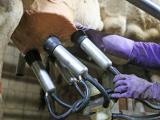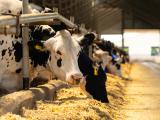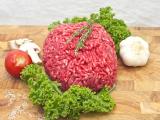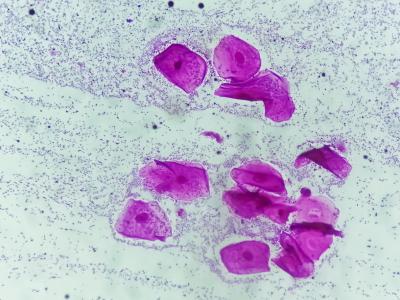Aug 11, 2009
WHO confirms 2 new H5N1 cases in Egypt
The World Health Organization (WHO) today confirmed two new human cases of H5N1 avian influenza in Egypt, bringing the number of Egyptian cases this year to 32, far more than any other country. The first case is in an 8-year-old girl from Kafr El Sheikh governorate. Her symptoms started on Jul 24, and she was admitted to a hospital the following day, where she received oseltamivir (Tamiflu). She is reported in stable condition. The second case-patient is an 18-month-old boy from Menoufia governorate. His symptoms started on Jul 28, and he was admitted to a hospital on Jul 29, where he also received oseltamivir treatment and is listed in stable condition. The WHO said both patients had close contact with dead or sick poultry. Of the 32 Egyptian cases this year, 4 have been fatal, and, of the 83 cases confirmed overall in Egypt, 27 have been fatal. The WHO has now confirmed 438 H5N1 cases, including 262 deaths, worldwide.
[Aug 11 WHO report on new cases]
Scientists say H5N1 avian flu may boost risk for brain diseases
A study of mice infected with a strain of H5N1 avian influenza virus suggests that the virus may increase the risk of Parkinson's disease and possibly other neurologic problems later in life, according to researchers from St. Jude Children's Research Hospital in Memphis. In a study published in the Proceedings of the National Academy of Sciences (PNAS), the researchers infected mice with the A/Vietnam/1203/04 strain of H5N1 virus and traced the virus's movement into the animals' nervous systems, according to a St. Jude press release. After 3 weeks the surviving mice had no signs of the virus in their nervous systems, but they had brain inflammation that persisted for months and resembled inflammation caused by inherited forms of Parkinson's disease. After 60 days the mice had a 17% loss of certain dopamine-producing neurons that are also lost in Parkinson's, and they showed a buildup in certain brain cells of a protein implicated in both Parkinson's and Alzheimer's diseases. But Dr. Jeffrey Taubenberger, an influenza expert who was not involved in the study, called it "a bit extreme" to suggest on the basis of the study that flu viruses might be linked to these diseases in humans, according to a Canadian Press report.
[Aug 10 St. Jude press release]
[Aug 10 Canadian Press story]
[Full text of PNAS article]
California firm recalls beef in wake of multistate Salmonella outbreak
Beef Packers Inc. of Fresno, Calif., recently recalled more than 825,000 pounds of ground beef because of an apparent link to an outbreak of antibiotic-resistant Salmonella Newport infections involving 21 cases in Colorado and others in other states, according to US and Colorado officials. The ground beef products, bearing "EST 31913" on the label, were produced between Jun 5 and 23 and distributed to retail stores in Arizona, California, Colorado, and Utah, the US Department of Agriculture (USDA) said in an Aug 6 statement. An epidemiologic investigation indicated a link between the Colorado cases and the products. The Colorado cases also shared a common DNA fingerprint, and the S Newport strain involved is resistant to several commonly used antibiotics, the Colorado Department of Public Health and Environment (CDPHE) said on Aug 6. The agency said four people had been hospitalized and all were recovering. In a Jul 31 statement, the CDPHE said cases were found in eight states besides Colorado.
[Aug 6 USDA news release]
[Aug 6 CDPHE news release]
[Jul 31 CDPHE news release]
Case count in E coli outbreak linked to cookie dough reached 80
The number of cases in a recent Escherichia coli O157:H7 outbreak linked to raw cookie dough reached 80 in 31 states, the Centers for Disease Control and Prevention (CDC) said recently in its final online update on the investigation. Seventy cases had DNA fingerprints matching the outbreak strain, the CDC said in its Aug 7 notice. Most of the cases occurred in May and June; 35 people were hospitalized and 10 had hemolytic uremic syndrome, but none died. An epidemiologic investigation pointed to prepackaged cookie dough as the likely E coli source, and most of the patients reported eating Nestle Toll House cookie dough. The Food and Drug Administration (FDA) found E coli in a sample of the cookie dough in late June, but it didn't match the outbreak strain. The company issued a recall, and consumers were warned not to eat any of the products subject to recall. In July the FDA said Nestle Toll House cookie dough products saying "new batch" on the label were not subject to the recall.
[Aug 7 CDC update]
[Jul 15 FDA statement]





















